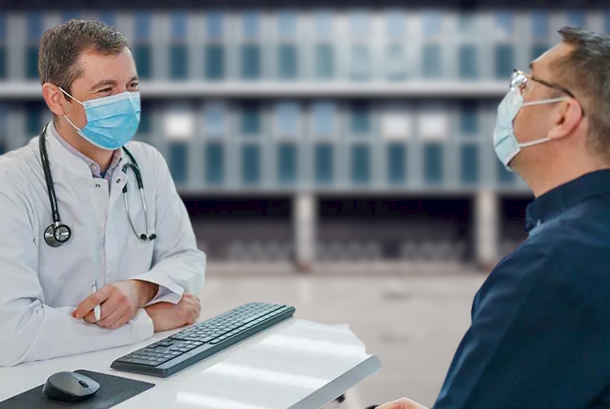What is a Polypoid lesion? - Definition, Symptoms, Causes, Treatment
Polypoid lesions and polyps are both types of mass lesions that protrude into the lumen from the mucosal surface. Polypoid lesions and polyps are typically painless and asymptomatic, and they are found incidentally during endoscopic examinations. Patients may not exhibit any symptoms at all (which accounts for more than 90 percent of cases), or they may complain of non-specific abdominal discomfort pain, and bloating. With recent advancements in endoscopic and endosonographic procedures, it is evident that polypoid lesions are more prevalent than anticipated.
In accordance with Oberhuber and Stolte's classification, polypoid lesions can be categorized into one of the following five categories:
- Hamartomatous polyps
- Heterotopic polyps
- Non-neoplastic polyps
- Polyps such as reactive polypoid lesions
- Neoplastic adenoma
Polypoid lesions Definition
The term "polypoid lesion" refers to abnormal growths that are elevated above the surrounding tissue or organ. They can emerge in different parts of the body, like the respiratory system, the digestive system, or the reproductive system. Polypoid lesions are frequently classified as benign (non-cancerous), but they also have the potential to develop into malignant tumors (cancerous).
Polypoid lesions can range in size and shape, and their surface can be either smooth or rough depending on their individual characteristics. Depending on their location and severity, they might be associated with signs such as bleeding, pain, or altered bowel habits.
Polypoid lesions Symptoms
Depending on their size and location, polypoid lesions may cause a wide range of symptoms. Even though the vast majority of gastric polyps do not cause any symptoms, they can however cause upper abdominal pain, hemorrhage in the gastrointestinal tract, and symptoms of gastric outlet blockage. The risk of complications is typically correlated with polyp size.

The patient may exhibit the following signs and symptoms if polypoid lesions form in the upper respiratory tract:
- Having trouble breathing through your nose due to congestion
- Discomfort in the sinuses
- Constant sniffles and other cold symptoms
- Decreased ability to smell
- Recurring sinus infections
- Congestion and runny nose
Polypoid lesions Causes
Although the precise cause of polypoid lesions is usually unknown, they might be the consequence of inflammation or infection in the affected area. They can be brought on by allergens, microorganisms, or environmental irritants. Inflammatory bowel disease and cystic fibrosis are two diseases that have been linked to the development of polypoid lesions.
Polypoid lesions can have many causes, including genetics and hormone disruptions. Individuals with a history of polypoid lesions in their family or who smoke may also be at increased risk.
Polypoid lesions Treatment
It is widely accepted that the best way to treat intestinal polypoid adenomas is to remove all of them during a colonoscopy procedure called excision. This is done to reduce the patient's chance of developing colorectal cancer. A number of procedures, such as simple fulguration and the excision of big polyps piecemeal, are utilized in the process of removing polyps. These procedures include the use of biopsy forceps and snare excision (with and without electrocautery).
 Reviewed by Simon Albert
on
December 19, 2022
Rating:
Reviewed by Simon Albert
on
December 19, 2022
Rating:











